Product
Fatty Alcohol Price Trend and Forecast
Fatty Alcohol Price Trend and Forecast
Fatty Alcohol Regional Price Overview
Get the latest insights on price movement and trend analysis of Fatty Alcohol in different regions across the world (Asia, Europe, North America, Latin America, and the Middle East & Africa).
Fatty Alcohol Price Trend for Q4 of 2024
| Product | Category | Region | Price | Time Period |
| Fatty Alcohol | Chemicals | USA | 1969 USD/MT | September 2024 |
| Fatty Alcohol | Chemicals | China | 2072 USD/MT | September 2024 |
Stay updated with the latest Fatty Alcohol prices, historical data, and tailored regional analysis
Asia
In Q4’24, Fatty Alcohol prices in Asia, especially in markets like China and India, showed a volatile upward trend for most of the quarter. Rising demand from the personal care sector, combined with tightened palm oil supply from Southeast Asia, pushed prices higher through October and November.
Fatty Alcohol Price Chart
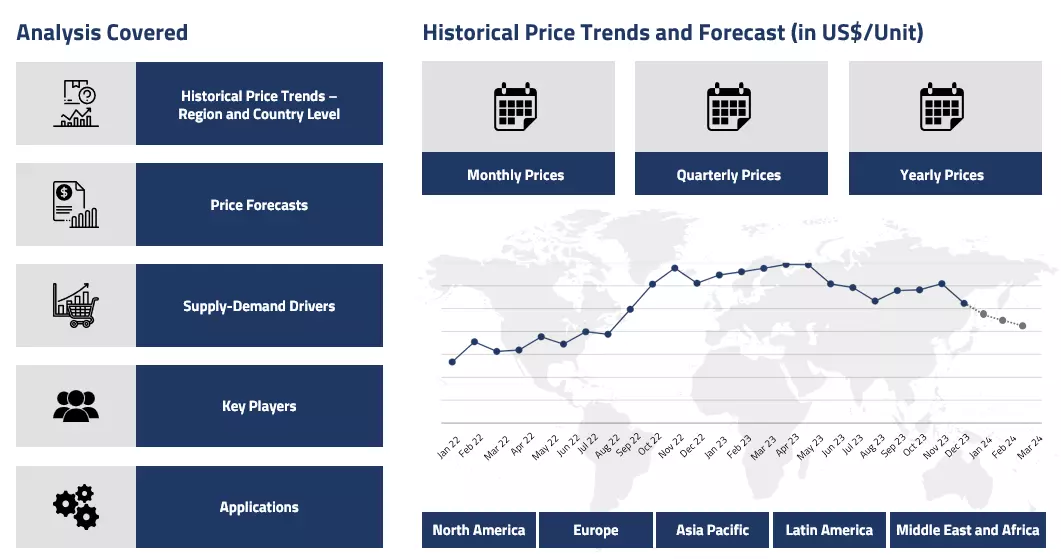
Please Login or Subscribe to Access the Fatty Alcohol Price Chart Data
The festive season in India led to increased restocking, while supply disruptions from Malaysia’s floods and Indonesian policy shifts added further pressure. Although freight costs improved slightly, raw material scarcity and high production costs kept prices elevated. In late December, trading activity slowed, and weaker buying interest caused a slight dip in prices, signalling a temporary relief.
Europe
In Europe, particularly in regions like Germany, the market reflected global fluctuations in palm oil supply and cost. October began on a stable note with steady demand and available supply, but cost signals from key producing countries soon drove prices upward. Through November, a combination of declining production in Malaysia and firmer export prices from Indonesia pushed costs higher.
Personal care sector activity helped maintain demand, but economic caution limited sharp purchasing. By December, extreme weather and export policy changes supported early price increases, but reduced year-end activity and softening palm oil prices reversed the trend slightly.
North America
North American markets encountered notable price instability through the quarter. Manufacturers in the U.S. faced rising costs as palm oil prices surged due to falling production overseas and stronger competition for available supply. Port delays and longer delivery times further added to cost burdens.
Strong demand from the domestic personal care industry kept consumption steady, though companies were forced to adjust pricing and inventory strategies to stay competitive. Toward the end of December, weaker trading volumes and falling feedstock prices led to some price correction, offering brief relief after months of steady increases.
Analyst Insight
According to Procurement Resource, Fatty Alcohol prices may continue to fluctuate into early 2025, depending on palm oil production trends, weather disruptions, and the evolving impact of biodiesel policies in key supply countries.
Fatty Alcohol Price Trend for Q3 of 2024
Asia
In Asia, the price of fatty alcohol faced downward pressure, particularly due to sluggish demand from the downstream personal care sector, especially in countries like China. The personal care market, a key consumer of fatty alcohol, was impacted by excess supply and restrained purchasing behavior among manufacturers. The decline in palm oil prices, a critical feedstock for fatty alcohol production, further contributed to the price drop.
Despite this, there was a steady supply of palm oil, ensuring ample availability for fatty alcohol manufacturers, which prevented any severe disruptions in production. However, the cautious approach of buyers, coupled with lower freight costs, kept fatty alcohol prices on a downward trajectory throughout the quarter. Nonetheless, the rise in self-care and wellness trends in the region offered some hope for recovery in the personal care sector's demand, potentially stabilizing prices in the long run.
Europe
In Europe, the fatty alcohol market started the third quarter on a bearish note due to weak demand from personal care manufacturers. The broader economic climate, marked by inflationary pressures and restrictive monetary policies, led to cautious procurement from end-users. The decline in inquiries from downstream sectors, especially personal care, caused prices to remain stagnant. The availability of palm oil in Europe was adequate, leading to steady production rates of fatty alcohol.
Despite the bearish market outlook, the quarter saw signs of a potential price hike due to scheduled maintenance shutdowns by several manufacturers during the holiday period. These shutdowns were expected to create a supply crunch, prompting an increase in procurement by downstream buyers to secure sufficient stocks. As a result, the market anticipated upward price pressure towards the end of the quarter, especially as demand outstripped supply. The cautious buying patterns seen earlier in the quarter started shifting in preparation for the anticipated supply shortage.
North America
In North America, fatty alcohol prices remained relatively stable, reflecting a balanced market. The personal care industry, a major consumer of fatty alcohol, exhibited average demand, and downstream buyers refrained from making large purchases, relying instead on need-based procurement. The availability of palm oil and steady production levels kept the supply chain running smoothly, preventing any significant price fluctuations. However, the quarter was not without challenges, as labor strikes at Canadian railroads disrupted chemical production and trade flows, indirectly affecting supply chains.
The strikes created uncertainty in the market, with some manufacturers reconsidering their production rates and operations. Despite these disruptions, fatty alcohol prices in North America remained relatively stable, as sufficient supply prevented any sharp price increases. Nevertheless, the potential for higher palm oil prices in the coming weeks was anticipated to put upward pressure on fatty alcohol prices as the quarter progressed.
Analyst Insight
According to Procurement Resource, the price trend of Fatty Alcohol is expected to exhibit an uncertain trend based on the geography of the region and ease of import of raw materials.
Fatty Alcohol Price Trend for Q2 of 2024
Asia
In the Asian market, fatty alcohol prices were supported by rising inquiries from the personal care industries and increasing upstream costs. The market showed signs of acceleration, driven by robust demand and higher production costs, reflecting a strong correlation with the trends seen in palm oil prices. In India, the fatty alcohol market was influenced by developments in the palm oil sector, a key upstream component of the commodity throughout the second quarter of 2024.
The rise in palm oil prices due to increased input costs mirrored the situation in the fatty alcohol market, where similar input cost increases impacted prices. The parallel between the two markets highlighted how changes in supply and demand dynamics can significantly influence pricing and production decisions.
Europe
The European fatty alcohol market experienced consistent price increases due to multiple factors affecting both supply and demand. The reductions in manufacturing across various European countries heightened supply-side concerns for fatty alcohol producers. Although Germany, a significant player in the region, faced economic setbacks in June, primarily due to the weak performance of its manufacturing sector.
The country's manufacturing activities indicated a slowdown in economic activity, reflecting a challenging environment for industries including chemicals and fatty alcohol. Additionally, rising freight charges amidst a container crunch exacerbated cost pressures on the raw materials required for fatty alcohol production. These dynamics have contributed to increased production costs, impacting the price realizations for fatty alcohol and complicating the European Central Bank's efforts to manage persistent inflation in the services sector.
North America
The market trend of fatty alcohol in North America mirrored the trend observed in the Asian and European countries. The upward momentum of the market was supported by rising demand from the downstream industries and escalating production costs. The feedstock commodities such as palm oil had a major share in driving up production expenditure.
On the other side, the manufacturing units were under the pressure of depreciating economic indicators of the market, reflective in their constrained production rates, widening the supply-demand gap of the market, further supporting the surge in fatty alcohol prices during the second quarter of 2024 in North America.
Analyst Insight
According to Procurement Resource, the price of Fatty Alcohol is estimated to be positively influenced by rising end-user procurement rates and limited production volumes amid uncertainties in the global economic growth rates.
Fatty Alcohol Price Trend for Q1 of 2024
| Product | Category | Region | Price | Time Period |
| Fatty Alcohol | Chemicals | USA | USD 1900/MT | March 2024 |
| Fatty Alcohol | Chemicals | Europe | USD 2200/MT | March 2024 |
Stay updated with the latest Fatty Alcohol prices, historical data, and tailored regional analysis
Asia
In the latter half of the first quarter of 2024, fatty alcohol prices in India rose by a significant margin, coinciding with the initiation of an anti-dumping probe on rubber industry chemicals imported from China and Japan. China’s oleochemical industry faced several challenges due to significant imports of finished products in the region amid the slowdown of domestic production activities in the first quarter with the advent of the Chinese New Year holidays and spring festivities.
The fatty alcohol demand, however, in India surged in the later months of the quarter, driven by warming weather conditions and increased consumption, notably in the FMCG and automotive sectors. In the EV segment, particularly two-wheelers, registrations have seen substantial growth, buoyed by incentives like the FAME-II subsidy, which supported an uptrend in the pricing trajectory of fatty alcohol in the first quarter of 2024.
Europe
In the European countries, the regional market witnessed a steady increase in fatty alcohol prices attributed to various factors. First and foremost, the global palm oil output has plateaued, restricting its availability due to expanded biodiesel mandates and challenging economic conditions. Reduced operating rates in German manufacturing firms further exacerbated supply-side pressures, leading to limited availability of the commodity in the region.
Malaysian palm oil futures have continued to climb, driven by higher crude oil prices, and its influx in the European markets has raised the overall cost of production of fatty alcohols. However, demand from downstream personal care industries was slower than anticipated. The pessimistic looms among German manufacturing firms due to economic weakness and political factors also challenged the uprising of the fatty alcohol price trend. Overall, Fatty Alcohol prices remained elevated, supported by sluggish palm oil production and increased demand from downstream industries.
North America
Fatty alcohol prices in the US market started to rise in 2024 due to increased palm oil prices and expectations of demand revival from downstream industries like cosmetics. Despite a drop in prices in the last quarter due to tepid demand and year-end destocking, palm oil price hikes since January have pushed up manufacturing costs.
Concerns persist over palm oil supply due to labor shortages, impacting fatty alcohol production in the region. Additionally, shipping traffic redirected to the Suez Canal from the Panama Canal has raised concerns about potential delays, affecting global ocean shipping and truck freight. The traders, however, noticed an incline in the overall trajectory of the market, supported by the rising geopolitical instability. Manufacturers anticipate a shift in Asia-U.S. East Coast container shipments, potentially raising freight costs and adhering optimism in the fatty alcohol market.
Analyst Insight
According to Procurement Resource, the price trend of Fatty Alcohol is expected to incline in the near quarters as the demand from the downstream industries is likely to improve with the stabilization of the global economy.
Fatty Alcohol Price Trend for October - December of 2023
Asia
Fatty Alcohol observed mixed market trend during the final quarter of the year 2023. Fatty Alcohol market started on a stronger note at the beginning of the quarter in October. Owing to the inclination in the feedstock palm oil prices, the market inched upwards in the first couple of months. However, the second half of the quarter saw a rapid fall in fatty alcohol prices.
Along with the feedstock oil prices, these market trajectories also followed the demands of downstream detergent, cosmetic, etc., industries during the given period. Since market demands were firm initially, the prices remained inclined. However, the holiday season in the latter months pushed the market demands down. Overall, confined variations were witnessed in the fatty alcohol prices.
Europe
The European market trend for fatty alcohol were very similar to the Asian trend. The trade disruptions caused by the Russia-Ukraine and Israel-Hamas wars had a substantial influence on the fatty alcohol price trend in the European markets. Amidst a global slowdown in industrial consumption and a decline in crude oil prices, fatty alcohol prices were also observed to be varying at the lower end of the price curve.
North America
The North American market trend for fatty alcohol were not any different from the other major global markets. Following the prices of feedstock palm oil, the market dynamics here, too, remained gloomy.
Existing inventory stocks pressurized the suppliers further to cut down production. Overall, swinging price trend were observed.
Analyst Insight
According to Procurement Resource, the Fatty Alcohol price trend are likely to continue to waver similarly in the coming months. Given the current market dynamics, no immediate change in the pricing outlook is projected.
Fatty Alcohol Price Trend for July - September of 2023
Asia
The Asian market recorded bearish sentiments for fatty alcohol prices during the third quarter of 2023. The lowered demands from the downstream surfactants and personal care industries led to the stockpiling of inventories, which greatly impacted the price trajectories. Further, the availability of cheap palm failed to provide the much-needed upstream cost support.
Despite the El Nino disturbances, the production of palm oil is all set to rise further, given the better availability of labor and maturation of plantations for harvesting. Hence, large stocks amid already falling upstream cost support and demands caused the price trend for fatty alcohol to decline in the said period.
Europe
In line with the Asian markets, the price trend for fatty alcohol kept on the lower side of the scale in the European regional market. The economic backlash, coupled with reduced buyer confidence in the market, affected the trading sentiments deeply, causing the market dynamics to suffer. Further, the cheap imports from Asia lowered the upstream cost pressure, which, coupled with bleak demands, caused the price graph of fatty alcohol to move downwards.
North America
Owing to the overstocked inventories and bearish demands, the trading dynamics of the US domestic market suffered, causing the price graph of fatty alcohol to decline during the said period. Further, the normalization of trade routes and freight charges affected the fatty alcohol prices.
Analyst Insight
According to Procurement Resource, the price trend for fatty alcohol are likely to fluctuate in the coming quarter, given the current uncertainties in the global demand and economy.
Procurement Resource provides latest prices of Fatty Alcohol. Each price database is tied to a user-friendly graphing tool dating back to 2014, which provides a range of functionalities: configuration of price series over user defined time period; comparison of product movements across countries; customization of price currencies and unit; extraction of price data as excel files to be used offline.
About Fatty Alcohol
Fatty Alcohols are extracted from natural fats and oils. They are usually of high molecular-weight and consists of straight chains of primary alcohols, but can also range from as few as 5-7 carbons to as many as 21-24 carbons. Some commercially important fatty alcohols are lauryl, oleyl, stearyl alcohols and cetyl alcohol.
Fatty Alcohol Product Details
| Report Features | Details |
| Product Name | Fatty Alcohol |
| Industrial Uses | Detergents and surfactants, Cosmetics, Industrial solvents, Emollients, Disinfectants, Food industry |
| Supplier Database | The Procter & Gamble Company, Wilmar International Ltd, Godrej Industries Limited, KLK Oleo Group |
| Region/Countries Covered | Asia Pacific: China, India, Indonesia, Pakistan, Bangladesh, Japan, Philippines, Vietnam, Iran, Thailand, South Korea, Iraq, Saudi Arabia, Malaysia, Nepal, Taiwan, Sri Lanka, UAE, Israel, Hongkong, Singapore, Oman, Kuwait, Qatar, Australia, and New Zealand Europe: Germany, France, United Kingdom, Italy, Spain, Russia, Turkey, Netherlands, Poland, Sweden, Belgium, Austria, Ireland Switzerland, Norway, Denmark, Romania, Finland, Czech Republic, Portugal and Greece North America: United States and Canada Latin America: Brazil, Mexico, Argentina, Columbia, Chile, Ecuador, and Peru Africa: South Africa, Nigeria, Egypt, Algeria, Morocco |
| Currency | US$ (Data can also be provided in local currency) |
| Supplier Database Availability | Yes |
| Customization Scope | The report can be customized as per the requirements of the customer |
| Post-Sale Analyst Support | 360-degree analyst support after report delivery |
Note: Our supplier search experts can assist your procurement teams in compiling and validating a list of suppliers indicating they have products, services, and capabilities that meet your company's needs.
Fatty Alcohol Production Processes
- Production of Fatty Alcohol either through Natural Source or by Petrochemical Source
In the natural production method, vegetable oils serve as a large-scale feedstock and the alcohols are obtained from the triglycerides (fatty acid tri-esters), which form the bulk of the oil. Triglycerides undergo transesterification to give out methyl esters which further undergo hydrogenation to form fatty alcohols.
Higher alcohols (C20–C22) can be obtained from rapeseed oil or mustard seed oil. While, in the Ziegler process (petrochemical production), ethylene is oligomerised with the help of triethylaluminium followed by air oxidation. This process gives even-numbered alcohols.
Methodology
The displayed pricing data is derived through weighted average purchase price, including contract and spot transactions at the specified locations unless otherwise stated. The information provided comes from the compilation and processing of commercial data officially reported for each nation (i.e. government agencies, external trade bodies, and industry publications).
Assistance from Experts
Procurement Resource is a one-stop solution for businesses aiming at the best industry insights and market evaluation in the arena of procurement. Our team of market leaders covers all the facets of procurement strategies with its holistic industry reports, extensive production cost and pre-feasibility insights, and price trends dynamics impacting the cost trajectories of the plethora of products encompassing various industries. With the best analysis of the market trends and comprehensive consulting in light of the best strategic footstep, Procurement Resource got all that it takes.
Client's Satisfaction
Procurement Resource has made a mark for itself in terms of its rigorous assistance to its clientele. Our experienced panel of experts leave no stone unturned in ensuring the expertise at every step of our clients' strategic procurement journey. Our prompt assistance, prudential analysis, and pragmatic tactics considering the best procurement move for industries are all that sets us apart. We at Procurement Resource value our clients, which our clients vouch for.
Assured Quality
Expertise, judiciousness, and expedience are the crucial aspects of our modus operandi at Procurement Resource. Quality is non-negotiable, and we don't compromise on that. Our best-in-class solutions, elaborative consulting substantiated by exhaustive evaluation, and fool-proof reports have led us to come this far, making us the ‘numero uno' in the domain of procurement. Be it exclusive qualitative research or assiduous quantitative research methodologies, our high quality of work is what our clients swear by.
Related News
Table Of Contents
Our Clients
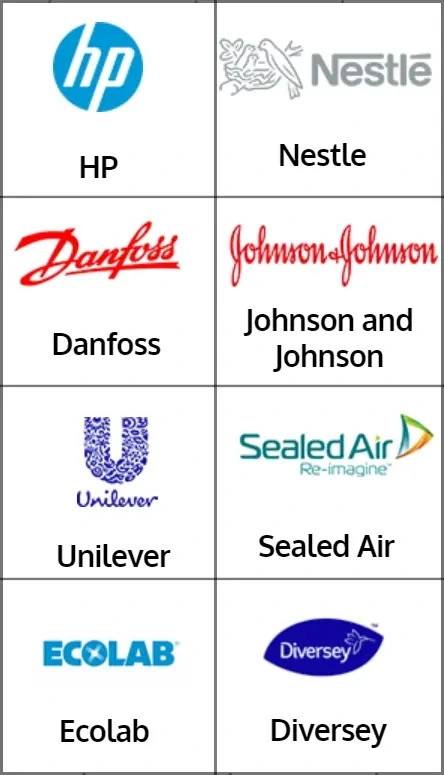
Get in Touch With Us
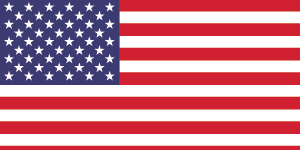
UNITED STATES
Phone:+1 307 363 1045
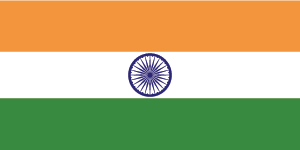
INDIA
Phone: +91 8850629517
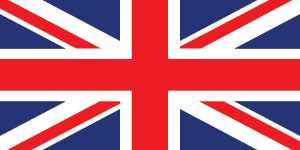
UNITED KINGDOM
Phone: +44 7537 171117
Email: sales@procurementresource.com


